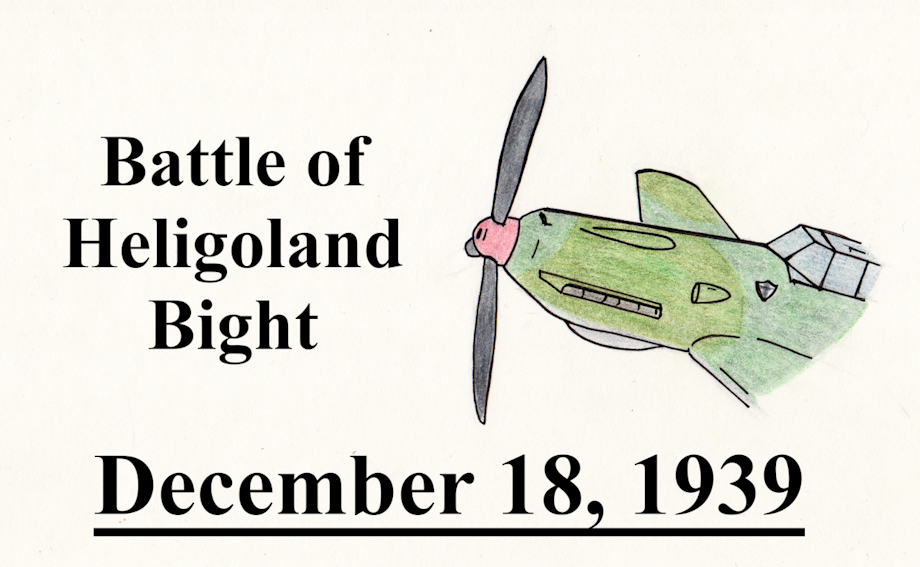On December 18, 1939, the Battle of Heligoland Bight takes place near and around Wilhelmshaven, Germany. The battle began early in the afternoon as 22 Vickers Wellington bombers of Britain's Royal Air Force (RAF) began their bombing runs on naval targets in the harbor at Wilhelmshaven. The objective of the raid was to destroy ships of Germany's Kriegsmarine (the German navy); however, raid was conducted during the day and at lower altitude in order to minimize civilian casualties. Furthermore, the British bombers conducted their mission without escort and with crews inexperienced in such combat operations. The German air force (Luftwaffe) was initially slow to react as the initial radar contact had been made by Kriegsmarine radar rather than Luftwaffe radar installations as well a disbelief among the local Luftwaffe officers that the British would conduct such an operation in clear skies during the day. However, German fighters were soon scrambled to intercept in the form of a force of Messerschmitt Bf 109 and Bf 110 fighters. Over the course of the next half-hour, the German fighters wreaked havoc among the British bombers. At the end of the battle, 12 of the 22 Wellington bombers had been destroyed while German losses amounted to a pair of Bf 109s destroyed and two more Bf 109s and two Bf 110s heavily damaged.
The battle proved to be a dismal failure for the British. For the cost of 22 aircraft and 57 men, the British had succeed in causing little to no damage to the harbor or ships therein. Officers within RAF Bomber Command initially blamed the losses on the failure of two of the squadrons to maintain formation and thus their ability to defend each other. In light of heavy losses in their early daylight raids against the Germans, the RAF would eventually shift to conducting their bombing raids at night. The Germans, however, cited the British formations combined with their decision to fly at low altitude in broad daylight as the reason for the heavy British losses. The results of the battle also encouraged the belief within the Luftwaffe that Germany was immune to Allied air attack and that the offensive was far more important than the defensive, a belief that was to be further reinforced with experiences in Norway, France, Greece, and elsewhere. In turn, German aircraft production would come to focus more on bombers and less on fighters, a decision which would become a problem a few short years later following the failure of Operation Barbarossa to knock the Soviet Union out of the war and the American entry into the war left Germany within striking range of Allied bombers.
Keywords
germany
396,
this day in history
248,
tdih
244,
wwii
243,
world war two
141,
united kingdom
78,
britain
64,
raf
27,
luftwaffe
15,
royal air force
6,
kriegsmarine
5,
december 18
1,
battle of heligoland bight
1,
heligoland bight
1
Details
Published:
5 years, 1 month ago
19 Dec 2020 03:06 CET
Initial: c5335f61f17f64c8aaa5cf98d4d627a7
Full Size: 1a66b1d172e9217ddfcc4a8400f6f20a
Large: f2d2e384115a308c63a3e035ddbe2704
Small: 3851c24222b518db0d823d5e7f726439
Stats
25 views
5 favorites
1 comment
